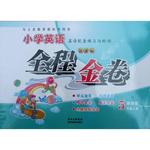题目内容
As the semester(学期) ended, students had a chance to turn the tables on their teachers.
They got to grade me anonymously(匿名地), assessing the ability of my thinking, my organizational skills and the depth of my knowledge. Such evaluations keep me alert to what works and what doesn’t. Students reflect my performance back to me, and I’m glad to learn what they think of my teaching so that I might try to improve.
This system reflects many aspects of my work. There is, of course, nothing wrong with it. But this system assumes that what students need is the same as what they want. Reading my evaluations every semester has taught me otherwise. Actually many students’ expectations for their courses have already changed, reflecting, in part, the business model many universities are following: classes are considered services, and parents are eager to get their money’s worth from their children’s education. Students feel pressure from their parents to get practical use from their courses.
This could make sense for an engineering course, but in my field, creative writing, which rarely trains up excellent 21-year-old writers, it is more difficult to provide the results that the career-minded students desire. Then I tried some teaching techniques to change the criticism of those unhappy students to the opposite and improve my student evaluations. My record would accurately reflect a smart, attentive, encouraging teacher. However, I would admit that they loved me simply because I agreed writing should be easy.
I know other teachers have done the same thing: teach your heart out to the teachable but be sure to please the unteachable; keep your ratings high, like a politician trying to improve his poll(民意调查) results. I believe in the struggle. But I still can’t help wincing(退缩) when I read, “The instructor is mean.” “Marcus is not committed to my work.” “This class sucks.” The business model has taught me that customers are always right. And maybe a few more dissatisfied customers would mean a better learning experience.
1.What can we know from the underlined phrase “turn the tables on their teachers”?
A.Students get a chance to have dinner with their teachers.
B.Students begin to criticize and punish their teachers.
C.Students judge and grade their teachers.
D.Students take action to praise their teachers.
2.Why have the students’ expectations for their courses changed?
A.Because students want to improve other abilities.
B.Because students feel great pressure from universities.
C.Because the business model has changed.
D.Because students have to satisfy their parents.
3.What can we infer from the passage?
A.Parents don’t care about their money spent on their children’s education.
B.The writer adopted some teaching methods so that he improved his student evaluations.
C.Similar to other teachers, the writer struggled to work as politicians.
D.The students intended to punish their teachers by giving comments.
4.What is the author’s attitude towards being graded by his students?
A.Satisfied. B.Negative. C.Positive. D.Scared.
1.C
2.D
3.B
4.C
【解析】
试题分析:本文介绍在学期末让学生对老师的教学进行评价的新体系,然后老师采取了新的教方法,说明作者对于这种被学生评价的体系是认同的。
1.猜测词义题。根据第2行assessing the ability of my thinking, my organizational skills and the depth of my knowledge.可知是评价老师。选C。
2.推理题。根据第二段第5,6行classes are considered services, and parents are eager to get their money’s worth from their children’s education.可知父母付钱供孩子上学,希望从中得到回报,孩子也想让父母满意。选D。
3.推断题。根据文章第三段第3,4行Then I tried some teaching techniques to change the criticism of those unhappy students to the opposite and improve my student evaluations.可知我采取了新的教方法。选B。
4.态度意图题。根据文章第二段和最后一段。说明作者对于这种被学生评价的体系是认同的。选C。
考点:考查教育类短文
点评:本文介绍在学期末让学生对老师的教学进行评价的新体系,然后老师采取了新的教方法,说明作者对于这种被学生评价的体系是认同的。细节题可以在文章中直接找到与答案有关的信息?或是其变体。搜查信息在阅读中非常重要它包括理解作者在叙述某事时使用的具体事实、数据、图表等细节信息。在一篇短文里大部分篇幅都属于这类围绕主体展开的细节。做这类题一般采用寻读法?即先读题,然后带着问题快速阅读短文,找出与问题有关的词语或句子,再对相关部分进行分析对比,找出答案。

 全程金卷系列答案
全程金卷系列答案 快乐5加2金卷系列答案
快乐5加2金卷系列答案